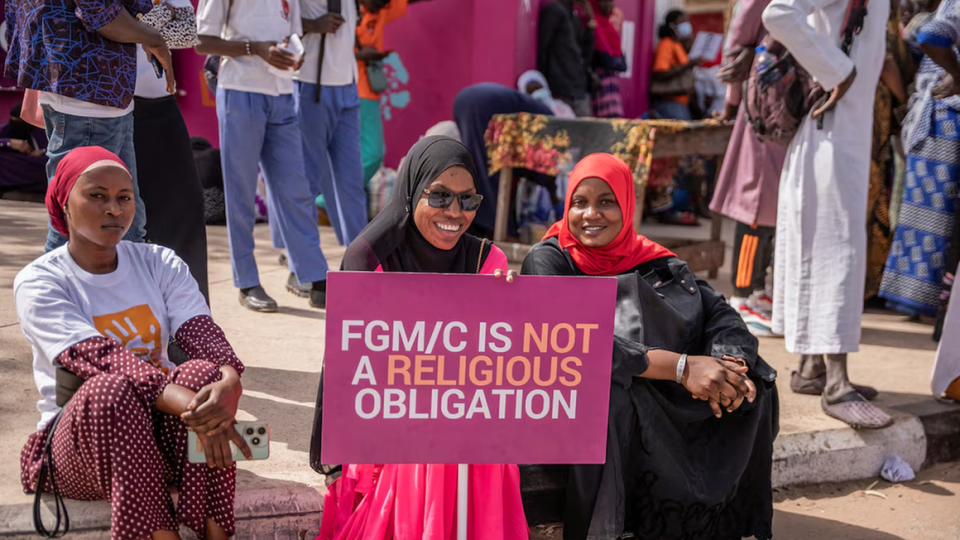Gambian lawmaker Almaneh Gibba started his campaign to overturn a 2015 ban on female genital mutilation after the country imposed its first fines on those found guilty of the practice last year.
Despite concerns about the leniency of the sentences – a $220 fine for three women accused of cutting eight infant girls – anti-FGM activists welcomed the ruling as a rare victory against a culture of impunity that typically shields offenders in countries where such mutilations occur.
But the convictions also prompted a backlash among Gambia religious leaders and inspired Gibba’s push to overturn the 8-year ban on what he calls female circumcision.
Parliament is now considering a bill proposed by Gibba to the alarm of advocacy groups who say it represents a step backwards in efforts to end a practice that can cause myriad health issues.
Around 180 civil society organisations signed an open letter in October urging Gambia’s government to uphold the anti-FGM law.
It is “not just a legal imperative but a moral obligation,” Gambia’s former vice president Isatou Touray, now Gambia’s highest-profile campaigner against the practice, said in February.
“With the world watching, history will judge us based on the actions we take,” she wrote in an op-ed.
Gibba, an independent MP and government critic, told Reuters the ban was not wanted by most people in Gambia, a predominantly Muslim country where some believe cutting a part of the clitoris is required by Islam and key to a girl’s passage to womanhood.
“We will not be dictated by Western philosophy and their views on what we do,” he said. “Who are they to tell us our culture, our religion, our traditional beliefs?”
Gibba’s bill looks likely to pass when it comes before parliament for a final vote in June. It passed in its second reading in March with only four out of 53 MPs in the predominately male assembly voting against it.
Rights groups say Gibba’s opinions do not reflect realities on the ground, particularly the views of excised women on a practice that the United Nations considers a serious human rights violation and a form of torture.
Government figures show 73 percent of Gambian women aged between 15 and 49 have undergone FGM. Of these, almost three-quarters had their clitoris fully removed along with other parts of their genitals.
A public consultation on the practice is scheduled to take place this month and be presented to parliament before the final vote.
The most recent government health survey in 2019-20 found that 46 percent of circumcised Gambian women between the ages of 15 and 49 believed the practice should be discontinued. Around 40 percent of men felt the same way.
No country has lifted a ban on FGM before. There are concerns Gambia’s bill could embolden a budding movement of pro-FGM activism in Africa hinged on self-determination and the right to choose.
“There is a growing wave of arguments regarding the consent of adult women, using the language of human rights and bodily autonomy,” said Caroline Lagat, a programme officer at advocacy group Equality Now, saying that in Gambia, most girls are cut before turning five.
At a national level, FGM is banned in over 70 countries worldwide, of which at least 35 are in Sub-Saharan Africa, according to the World Bank.
Advocacy groups say such laws are often just rubber stamps, barely enforced in practice, but still remain a crucial steppingstone in the fight against FGM. – The East African


